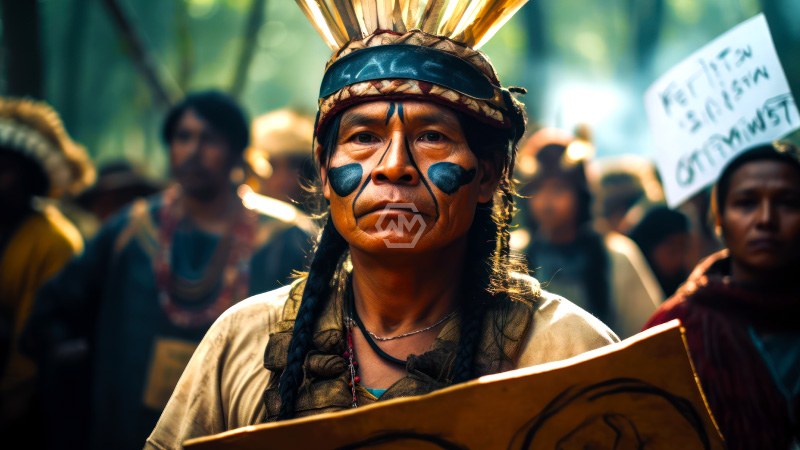- Native Americans are essential to the fight against climate change.
- 80% of all species on Earth and 24% of all land are found among the 370 million indigenous people who inhabit the planet.
- At least 24% of the carbon stored above ground in tropical forests worldwide
Native Americans, who have close ties to the natural world, are essential to the fight against climate change. They are knowledgeable about coexisting with nature and have long resisted attempts to alter environmental changes, such as deforestation.
80% of all species on Earth and 24% of all land are found among the 370 million indigenous people who inhabit the planet. To effectively combat climate challenges, the international community should take inspiration from them on sustainable biodiversity management.
Climate change
The Maori communities in New Zealand, who were driven from their ancestral lands by colonization, now have to contend with the fury of climate change. They are vulnerable to tidal inundation, storm surges, coastal erosion, and flooding in their new habitats in riverine or coastal floodplains. Climate action should incorporate the lessons learned from indigenous peoples, who have long demonstrated successful adaptation.
With two to three times lower rates of deforestation on tenured indigenous forestlands than outside these areas, indigenous peoples are pioneers in creating effective nature-based solutions. At least 24% of the carbon stored above ground in tropical forests worldwide is stored on indigenous and community lands.
Speaking with locals provides a more comprehensive and integrated view than relying solely on measurements. We can better understand what matters to and needs attention from indigenous people by asking them about the changes they are seeing.
By documenting their observations on climate change, indigenous communities can expose the true scope of their struggles, and this will help us in our efforts to achieve climate justice.
Climate change has made it harder for Inuit communities on Canada’s Baffin Island to transmit traditional hunting and harvesting methods, they claim, erasing an indigenous culture. Indigenous people claim that rather than being a list of facts, their knowledge is based on relationships with plants, animals, and the natural world. For this reason, they take care of these things.



